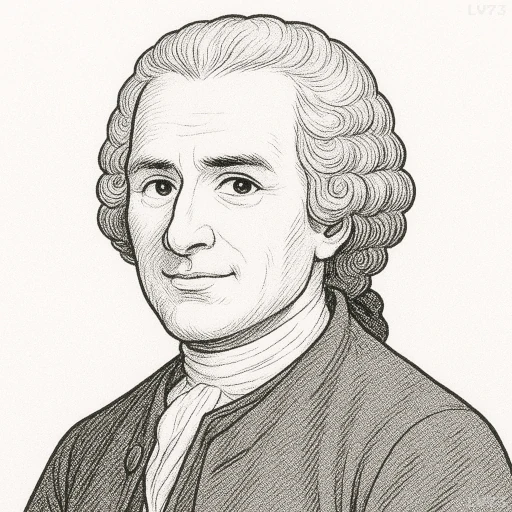“I long remained a child, and I am still one in many respects.”

- June 28, 1712 – July 2, 1778
- Born in Geneva
- Philosopher, political philosopher, writer, composer
table of contents
Quote
“I long remained a child, and I am still one in many respects.”
Explanation
In this quote, Jean-Jacques Rousseau reflects on his own personal growth and self-awareness. He acknowledges that, despite his age or accomplishments, he has retained certain qualities of childhood—perhaps a sense of innocence, curiosity, or emotional sensitivity. Rousseau’s statement speaks to his belief in the value of childlike qualities and simplicity in understanding the world, suggesting that maintaining a sense of wonder and purity can be an essential part of staying true to oneself. The quote also hints at Rousseau’s struggle with the expectations of society, where he often felt out of place or misunderstood, as his own experiences and emotional responses did not always conform to the norms of adulthood or societal expectations.
Historically, Rousseau’s thoughts on retaining childlike qualities reflect his broader philosophy about human nature and society. In works like Emile, he championed the importance of nurturing the natural, untainted qualities of children, such as curiosity and authenticity, as they grow into adults. Rousseau believed that society often corrupted these natural instincts, replacing innocence and simplicity with artificial norms and social constraints. For Rousseau, to “remain a child” was not a weakness but a sign of retaining something pure and genuine that was often lost in the process of socialization.
In modern times, Rousseau’s reflection on remaining a child in many respects resonates with the ongoing value placed on creativity, imagination, and emotional authenticity in adulthood. In a world that often prioritizes rationality and professionalism, Rousseau’s quote suggests that there is wisdom in retaining some of the childlike qualities that encourage open-mindedness, curiosity, and an ability to engage with the world in a fresh, uninhibited way. It serves as a reminder to value the inner child—the part of us that is open to learning, full of wonder, and connected to our natural instincts—rather than solely focusing on conventional markers of maturity and success.
Would you like to share your impressions or related stories about this quote in the comments section?




